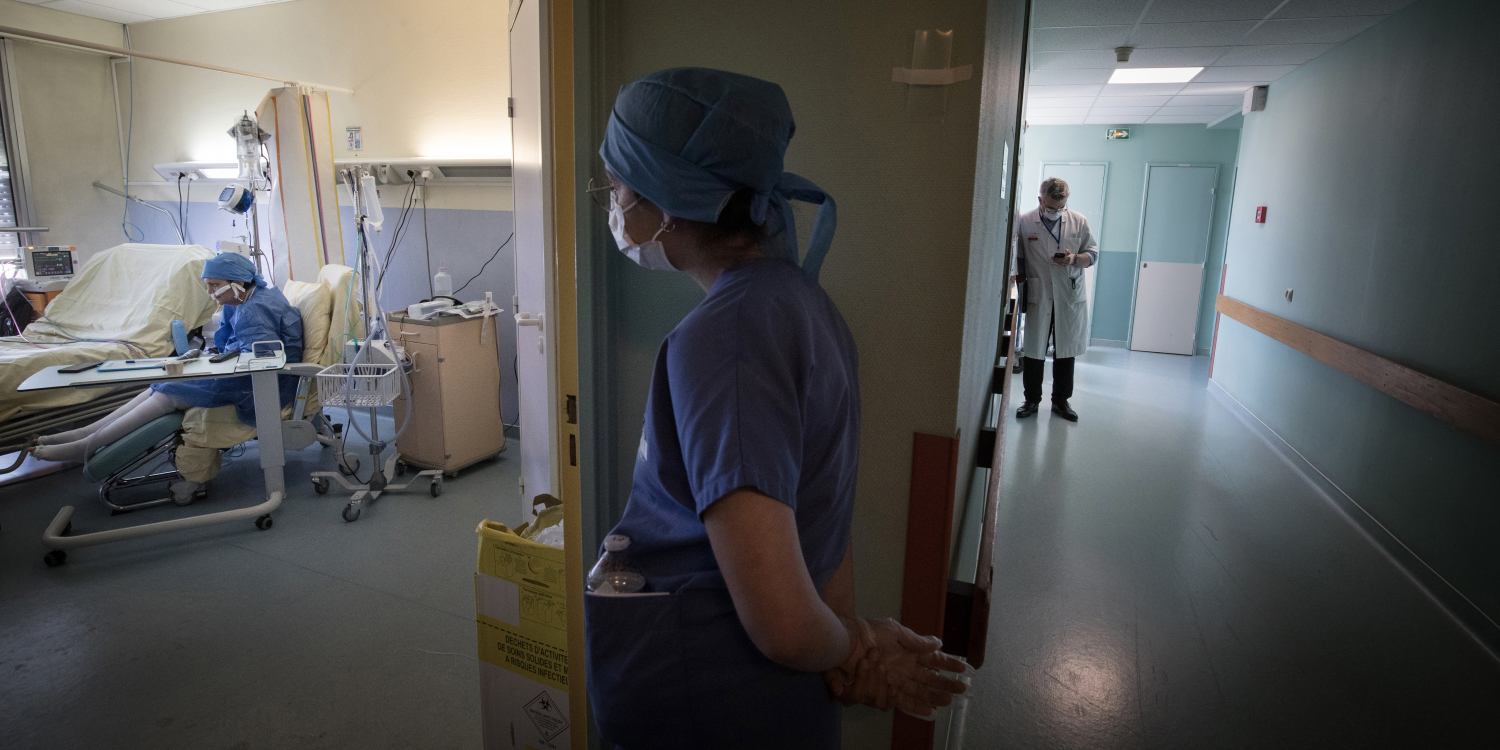INTERVIEW
Are we heading towards the end of the Covid-19 epidemic in France? Across the country, the number of new cases is decreasing. In Seine-Saint-Denis, one of the most affected departments, against all odds the number of Covid-19 patients admitted to the emergency room is declining. Following the Europe 1 survey on this decline, which questions the doctors, Frédéric Adnet, head of emergency at the Avicenne hospital in Bobigny, provided more details on the hypothesis of a "tail of the epidemic" and the questions that remain around this weakening in a department such as Seine-Saint-Denis.
>> LIVE - Coronavirus: follow the evolution of the situation
What are the figures at the Bobigny emergency room in the past 24 hours, how many admissions and sick people in total?
We are witnessing a very noticeable decrease in the number of new Covid cases that come to the emergency room, or calls to the Samu. At the heart of the epidemic, there were a hundred Covid-19 patients per day; currently there are less than three suspect Covid patients, of whom it is unknown whether or not they will develop the disease.
However, even if we are witnessing a very significant decrease in the number of sick patients arriving in the emergency room, we must keep our protective measures. It is not a call for relaxation, but it is true that confinement does not explain everything, especially in our population.
What explains this slowdown in a department as affected as Seine-Saint-Denis?
I expected to have a "background noise", to always have a flow of patients who come from disadvantaged populations. There is a slum opposite the Avicenne hospital and we know that confinement is not respected there, there are also large families who live in precarious conditions. I expected to have 10 to 15 patients who developed Covid every day. Today, however, I hardly have any left.
I do not think that there is a higher immunity in Seine-Saint-Denis than in the other departments of Île-de France. It is estimated at 10-12%, which is not enough to explain this drop in patients since to stop an epidemic, it would have to be between 60 and 70%.
The question is: "Are we dealing with the natural evolution of a seasonal virus with an epidemic peak then an extinction of this virus due to climate change, or with a natural history of a seasonal virus which does the epidemic go away on its own? "
So we can still consider seasonality when this hypothesis seemed to have been swept away?
We hadn't swept it that far, as evidenced by a recently published scientific article in Science, with models on seasonality. There is, however, an uncertainty that exists. All coronaviruses (three of which are "nice", and three of which are "bad") are seasonal, as we know. However, on an emerging virus, we cannot comment, so we make baseless bets.
Currently, there is a big uncertainty about seasonality, but what I observe since my emergencies in Seine-Saint-Denis is that I cannot explain the decrease in the number of patients that I see arriving daily only by containment measures. This means that we must maintain our precautionary measures, but that we still have the hope of being on the "tail of an epidemic".
CORONAVIRUS ESSENTIALS
> Deconfinement: what you need to know about returning to work after May 11
> Partial unemployment: the parents' situation clarified
> What will shopping be like after May 11?
> The French will have to go on vacation near their home
> Why going to the hairdresser will cost more after confinement
Does this mean that the famous "second wave" may never take place?
It all depends on what is meant by "second wave". If it is a seasonal recurrence, then the second wave will be a second epidemic that we see in this type of virus, in the fall and in the winter with a re-emergence of the virus. On the other hand, will there be a second wave because we have lowered our guard and the barrier measures and containment are much less respected? It is a possibility that cannot be completely discounted.

